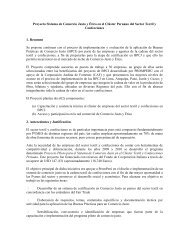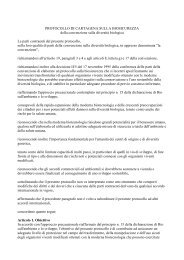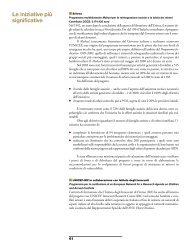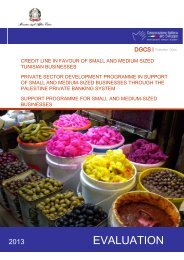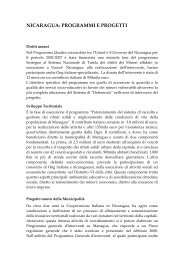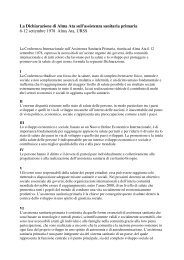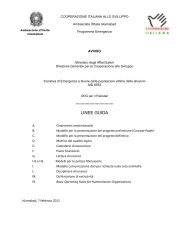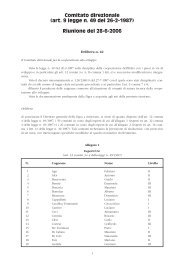FRONTESPIZIO - Cooperazione Italiana allo Sviluppo
FRONTESPIZIO - Cooperazione Italiana allo Sviluppo
FRONTESPIZIO - Cooperazione Italiana allo Sviluppo
Create successful ePaper yourself
Turn your PDF publications into a flip-book with our unique Google optimized e-Paper software.
42 Sandro Accorsi, Nejmudin Kediragement. In addition, parallel reporting mechanisms persist with programmaticand donor-supported initiatives resulting in multiple reporting formats and anincreased administrative workload”.Therefore, information in the health sector is basically affected by two categoriesof problems:i) the inadequate quality, completeness and timeliness of data producedthrough the routine health recording and reporting procedures based onparallel systems; andii) the insufficient use of available data for planning, implementation, servicemanagement, monitoring and evaluation.These two problems are inter-related: in fact, little use of information is a majordeterminant for the poor quality of data collected: staff is required to doexcessive data recording and reporting and is overwhelmed by data demands,whereas a quality assurance system is not in place and little use of data is donefor planning and decision making. As a result, too much information is collectedbut it is poorly analysed and interpreted, not easily comparable and oftennot used. Therefore, data are often inaccurate, untimely, unrepresentative,and sometimes of such poor quality that confidence in the entire informationsystem is undermined.2) HMIS in Ethiopia: current situation and way forwardAlongside the challenges, many new opportunities to reform HMIS are nowemerging. These include the development of a comprehensive approach todata management, with a shift of focus from data collection to data analysisand information use (Figure 1), with improved tools and methods for epidemiologicsurveillance and performance monitoring, and innovations suchas information technologies and geographic information systems, all of whichhave the potential to significantly improve both HMIS coverage and dataquality. Important opportunities are also emerging from the process of healthsystem decentralization and accompanying demands for locally relevant anduseful health information. In response to the increasing decentralization ofmanagement functions and resource <strong>allo</strong>cations to the woredas, HMIS strategyis increasingly focused on the capture, storage, analysis and interpretationof data for local decision-making in a decentralized and accountable healthsystem, with structures, processes and organizational culture developed to theextent that performance and accountability are encouraged.However, decentralization has led not only to new opportunities, but also tofurther challenges in building the national HMIS. On one side, there is the





